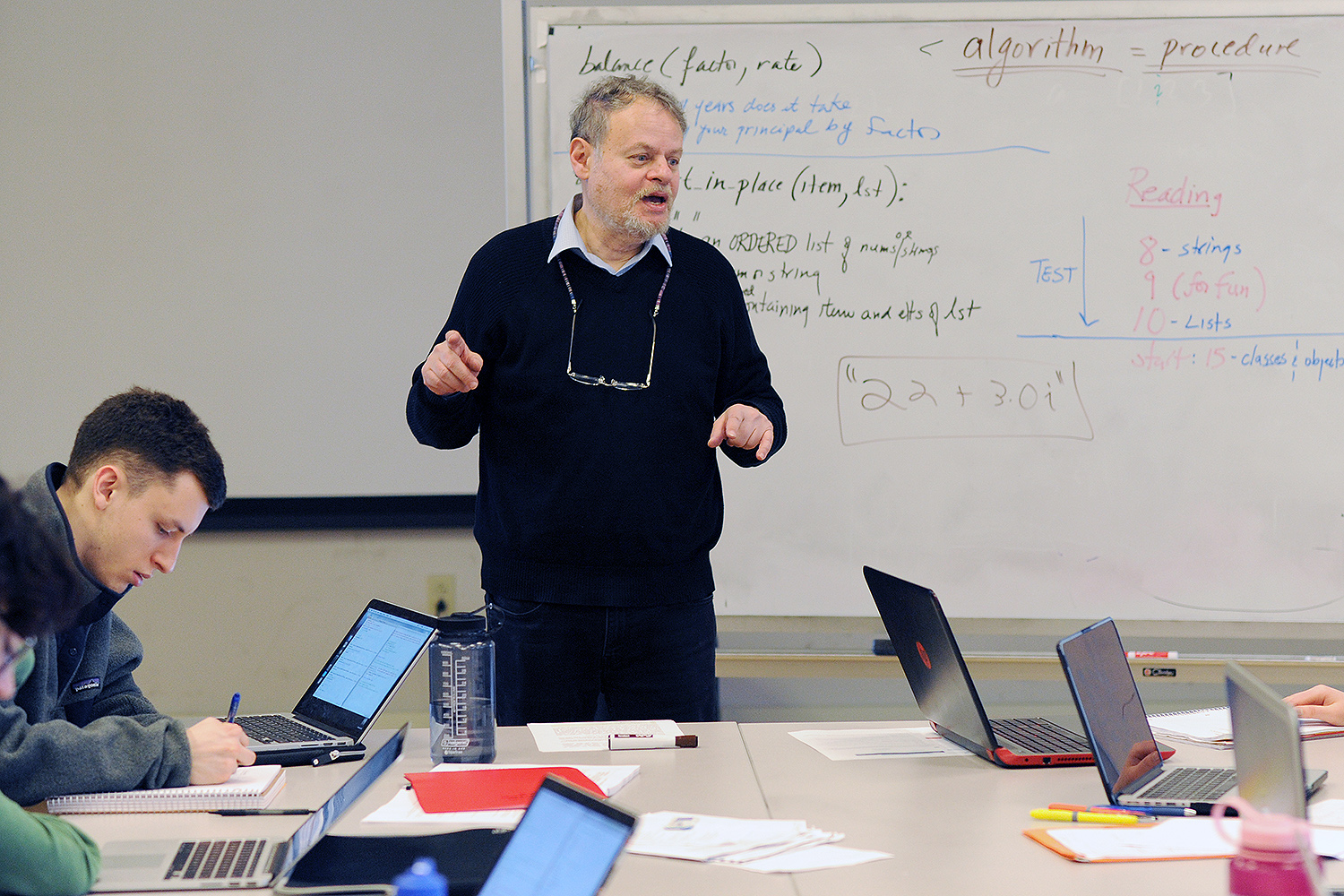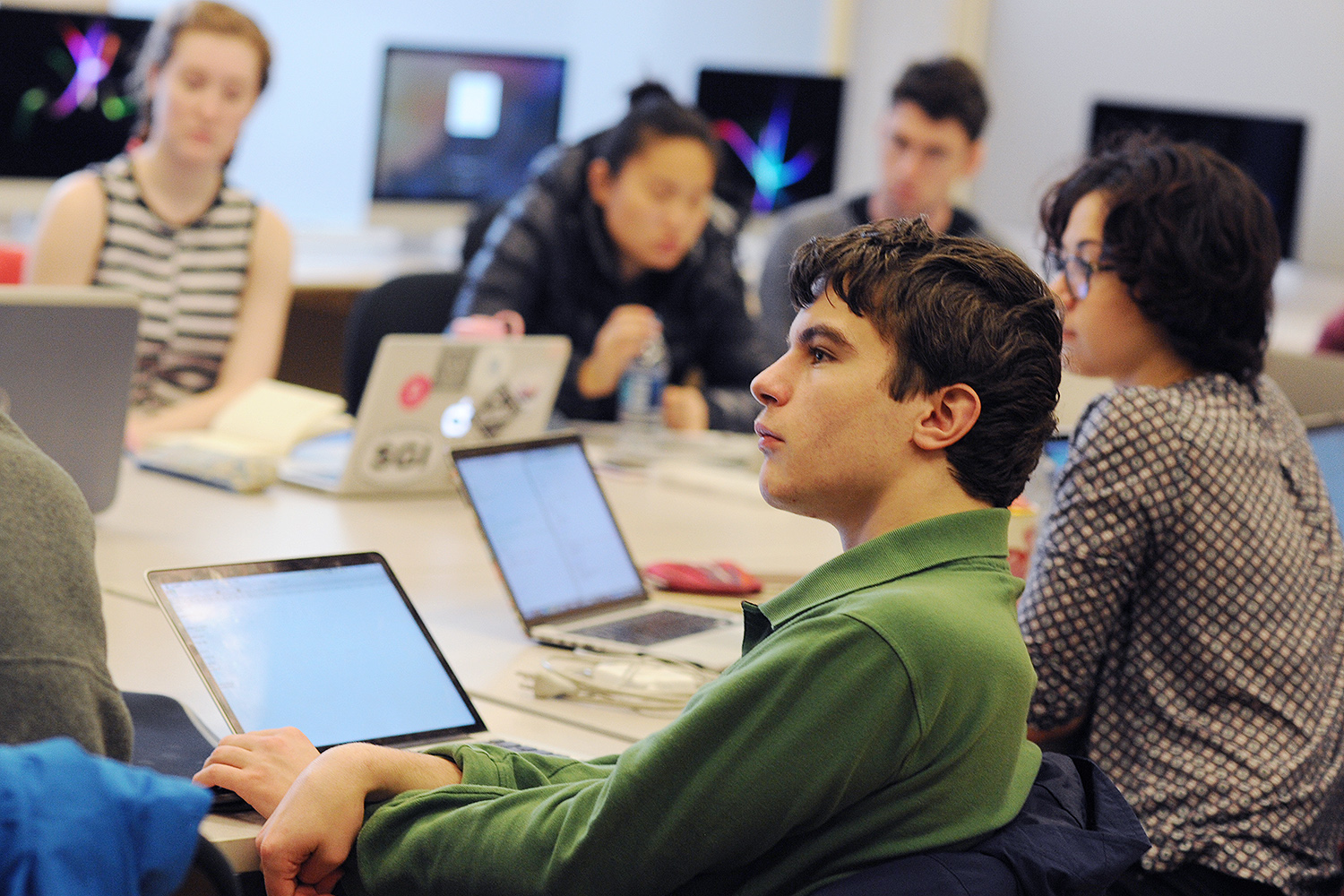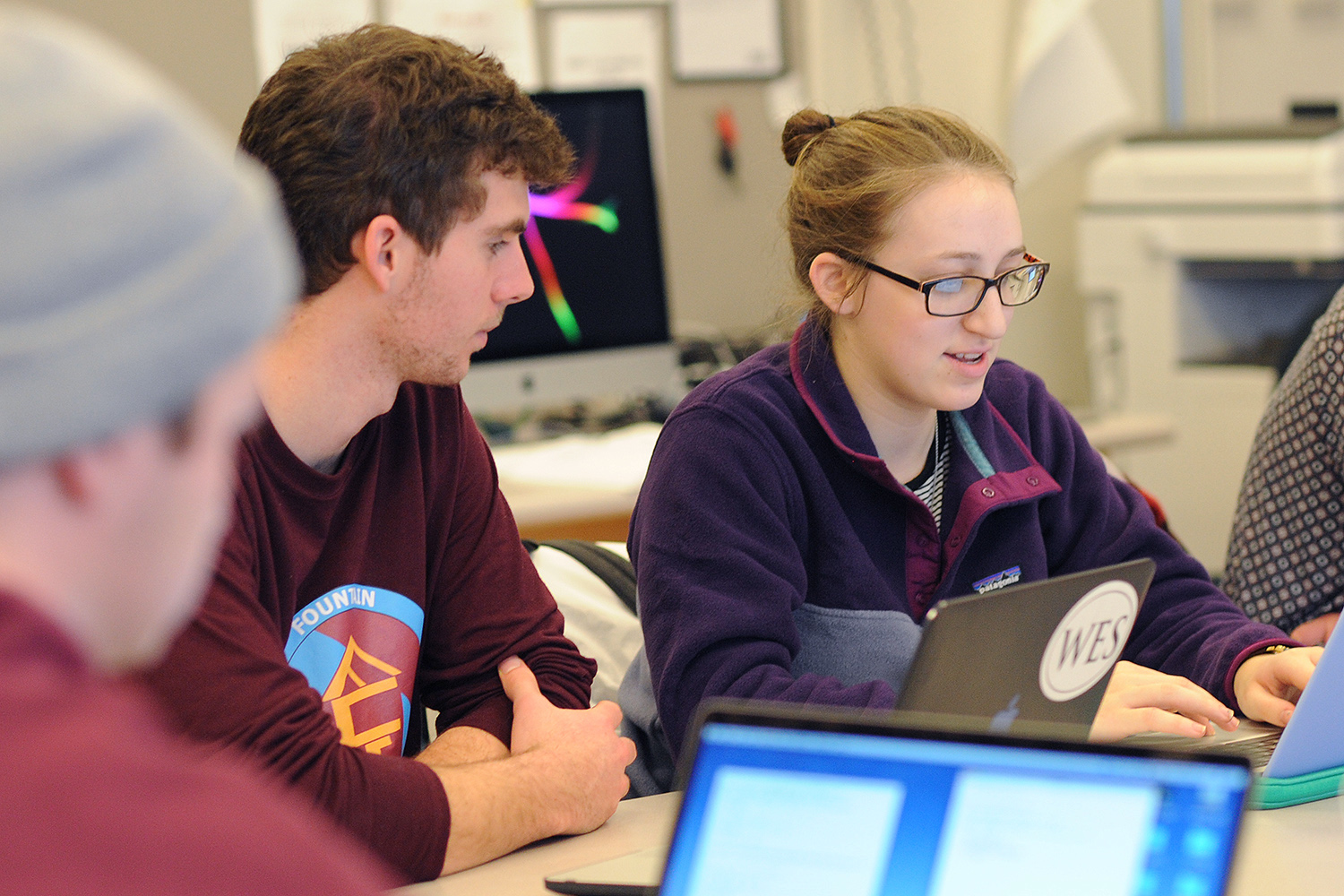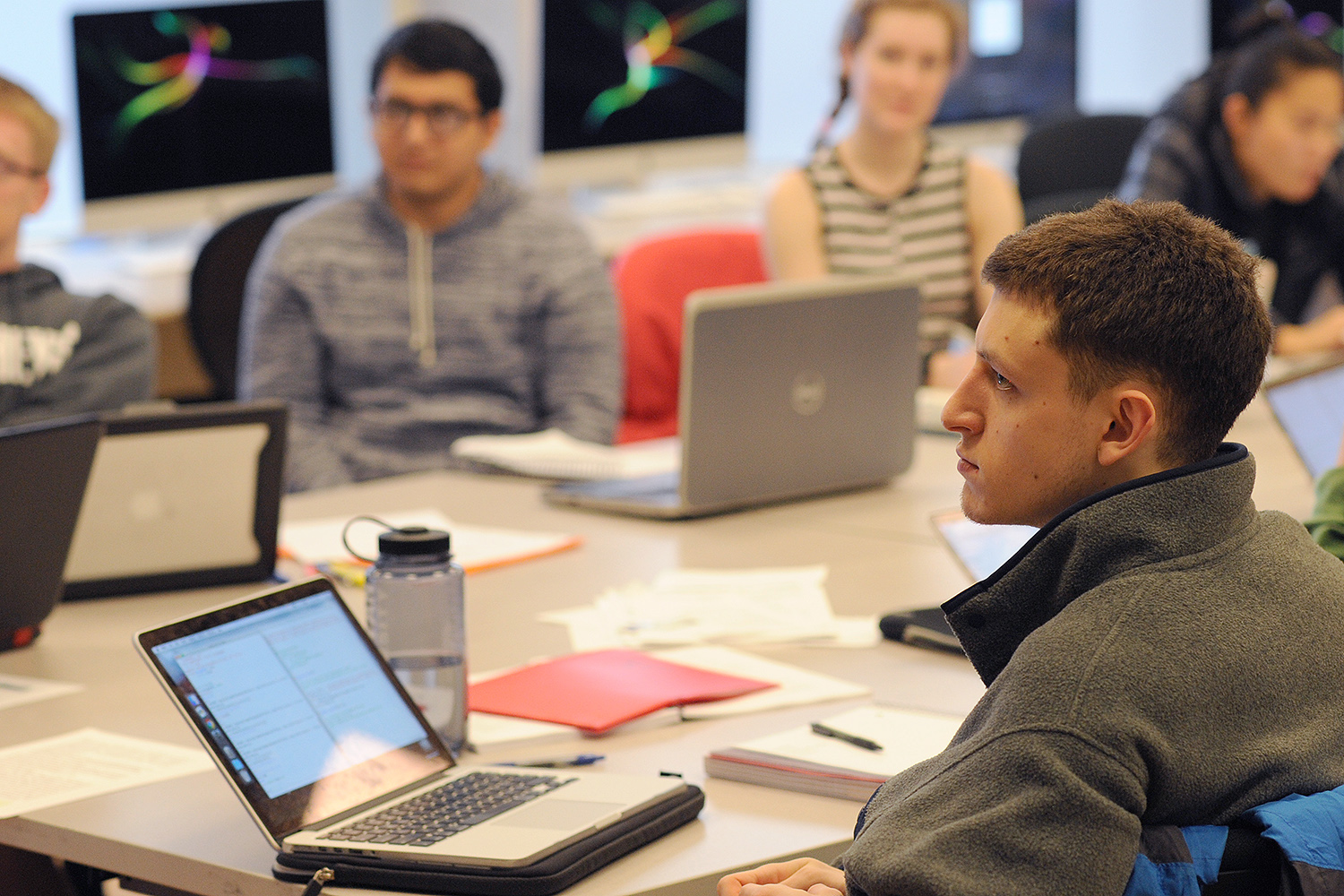Record Number of Students Enroll in Winter Session 2017
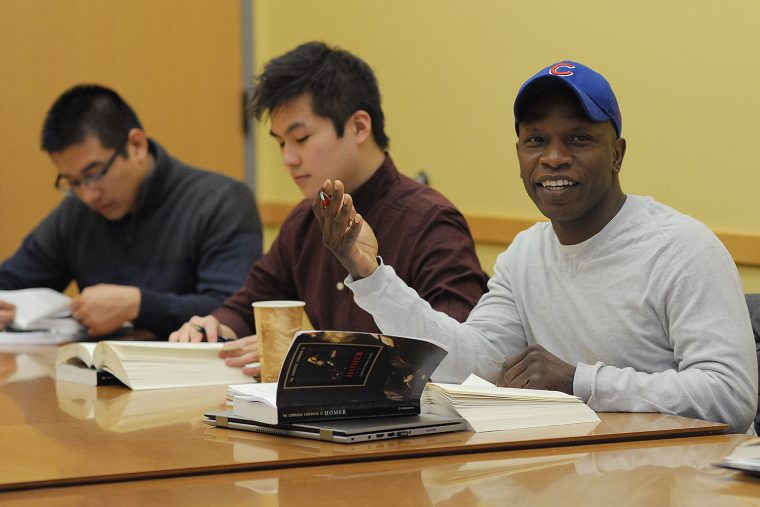
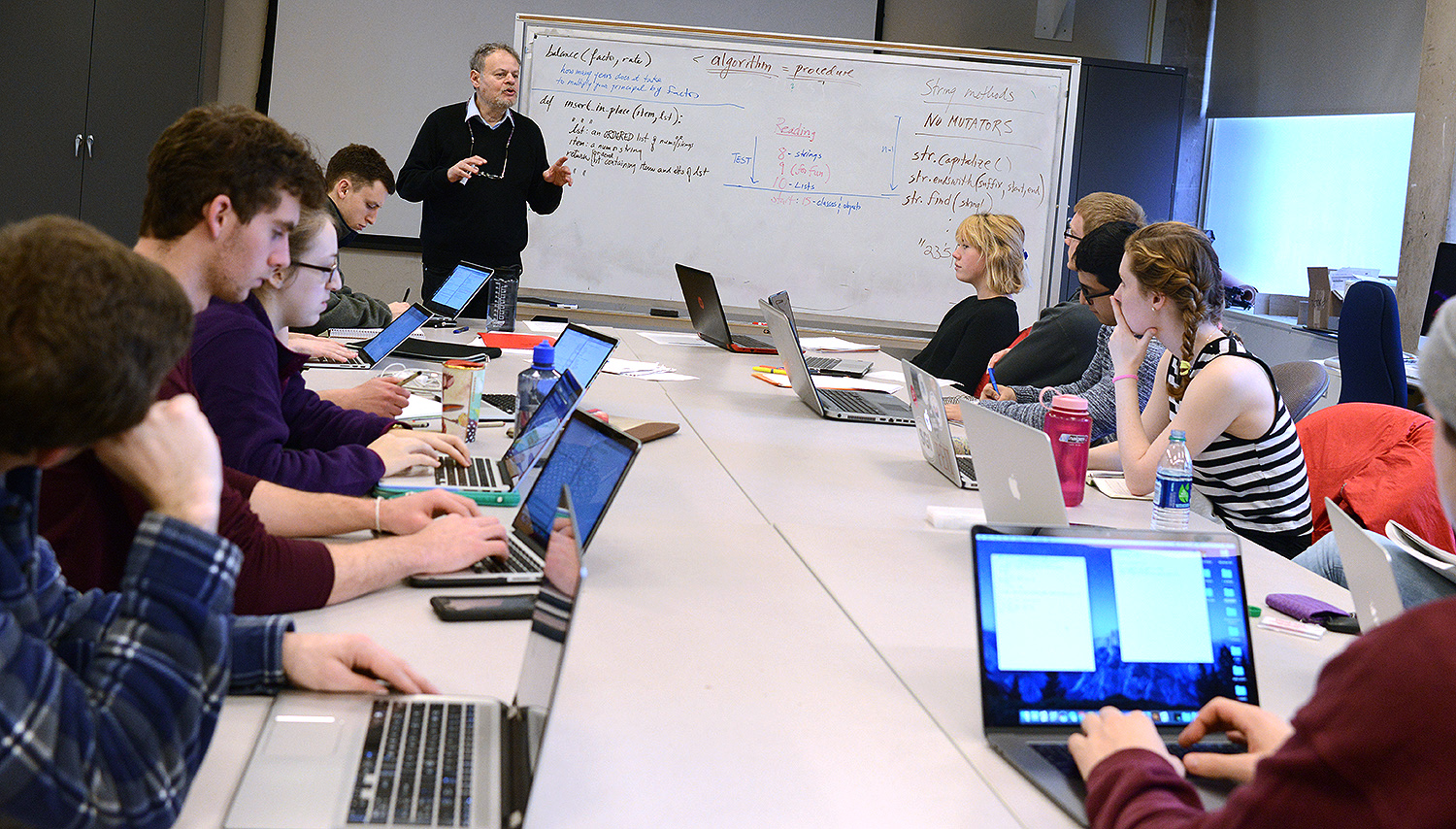
More than 100 Wesleyan students completed a full-semester course in two weeks as part of Winter Session 2017. Now in its fourth year, this was the highest enrollment to date.
Winter Session was held Jan. 9-24 and classes typically met for four hours a day for 10 days.
Courses this year included Introduction to Digital Arts, taught by Christopher Chenier; The Dark Side of the Universe, taught by Edward Moran; Homer and the Epic, taught by Andrew Szegedy-Maszak; Introduction to Programming, taught by James Lipton; U.S. Foreign Policy, taught by Douglas Foyle; Masculinity, taught by Jill Morawski; and Applied Data Analysis taught by Lisa Dierker.
The small class sizes allowed students to develop close relationships with one another and faculty. Students completed reading and writing assignments before arriving on campus.
“A quieter campus, and a singular focus on just one course, allows students to connect more closely with faculty and classmates,” said Jennifer Curran, director of Continuing Studies. “These intensive courses provide opportunities for new insights as students engage with topics in a truly different format.
Andrew Szegedy-Maszak, the Jane A. Seney Professor of Greek, professor of classical studies, taught Homer and the Epic.
In this course, students read the Iliad and the Odyssey, two epics recognized as the first major texts of the Western literary tradition. Through a close reading of both epics, students consider issues such as Homeric composition and poetic practice, heroes and the heroic code, the relations between humans and gods, the role of fate, and the structure of Homeric society. Students also read a number of contemporary critical essays to help frame their classroom discussions.
“I only have 11 students, and it’s just enough that we can have real conversations with one another,” Szegedy-Maszak said. “In Winter Session, I basically direct traffic and say ‘go’ and everyone talks to each other.”
Photo of his class are below:
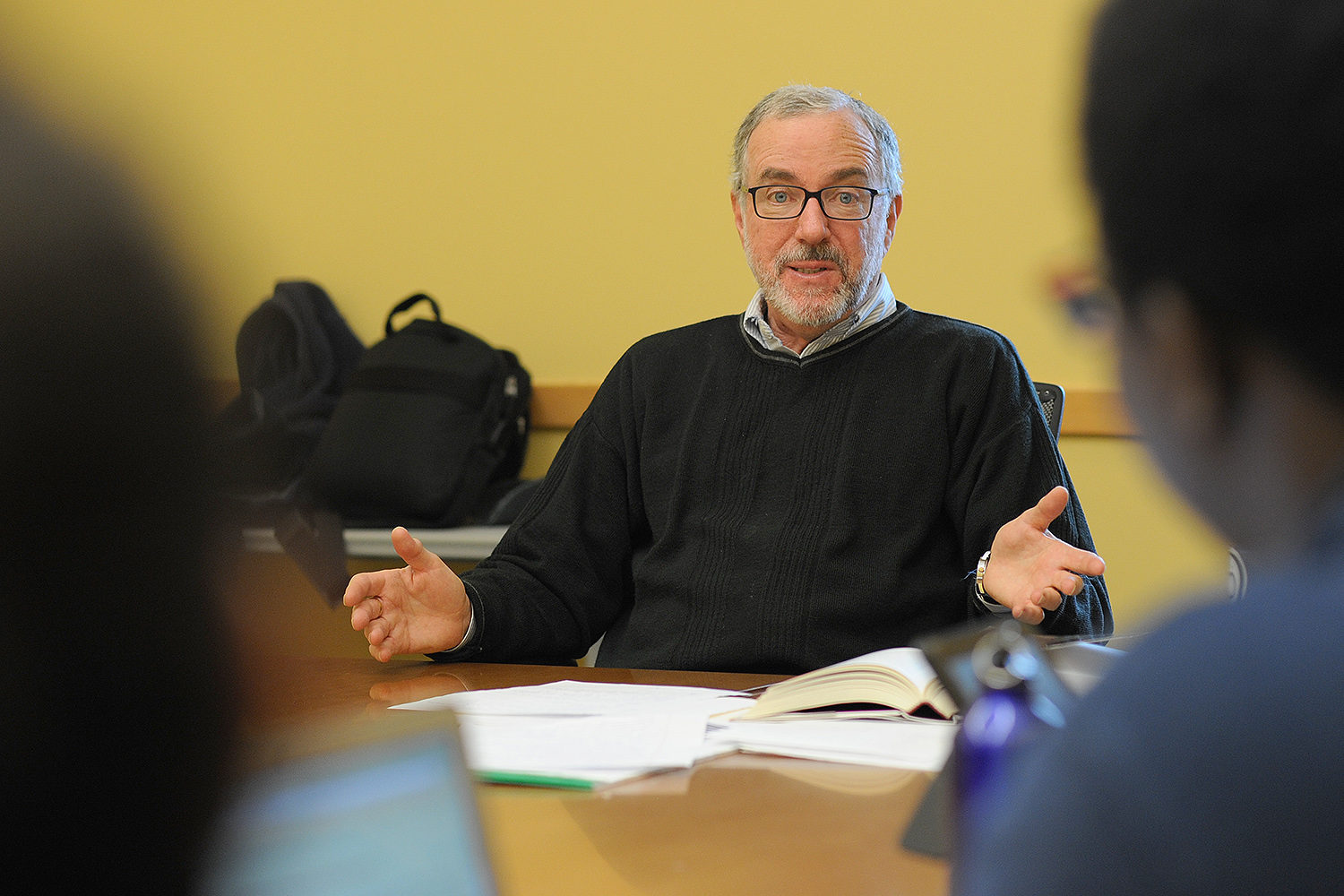
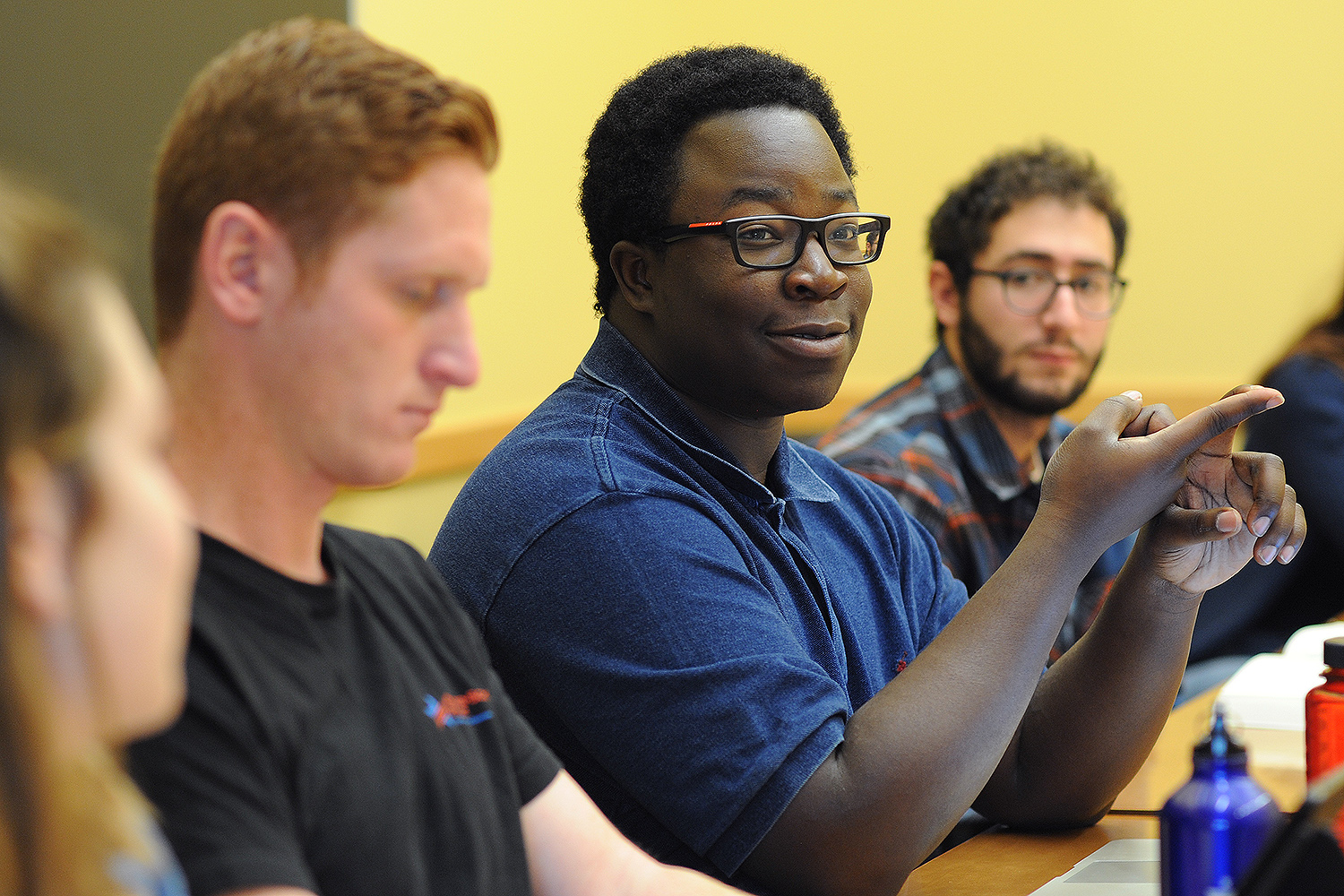
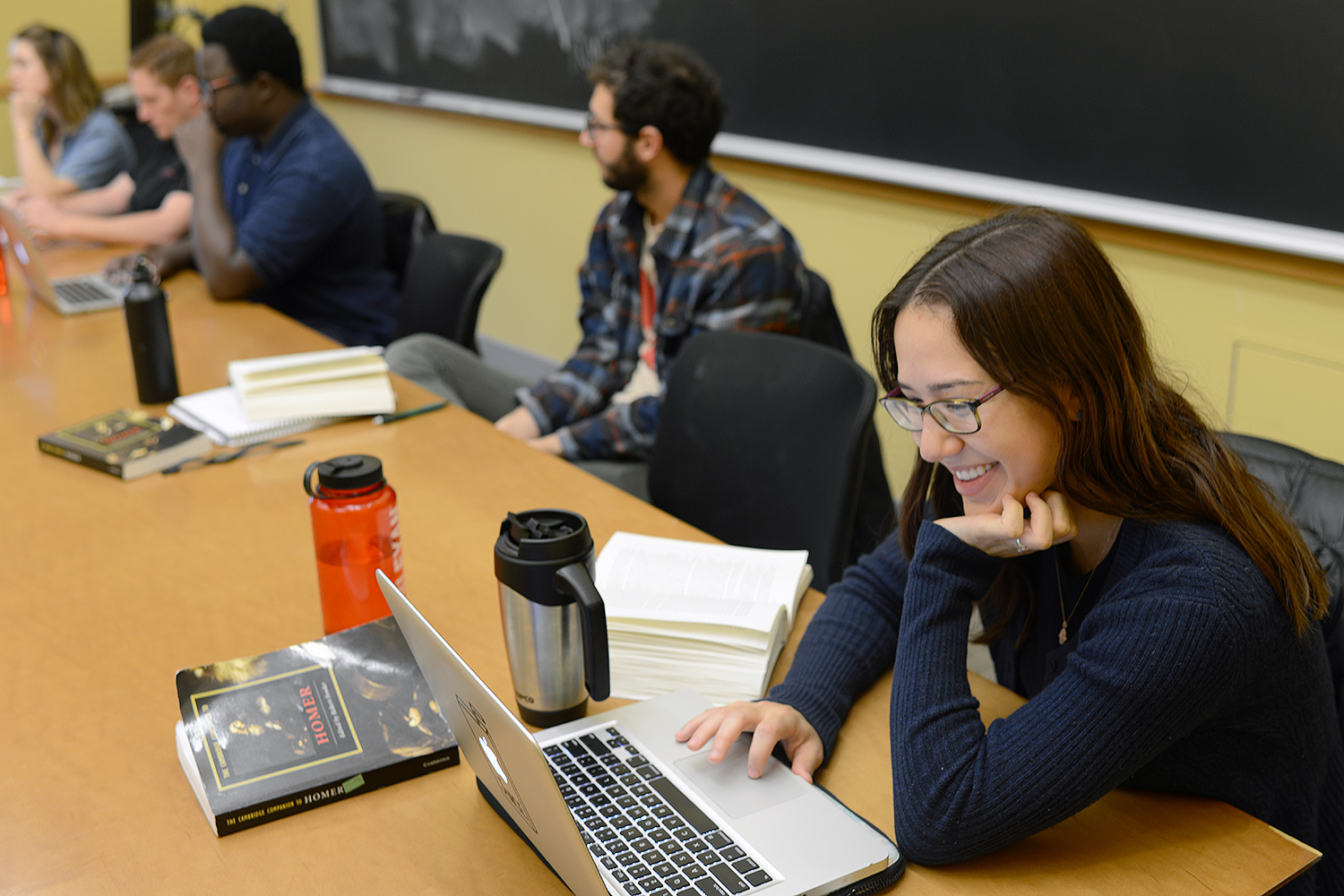
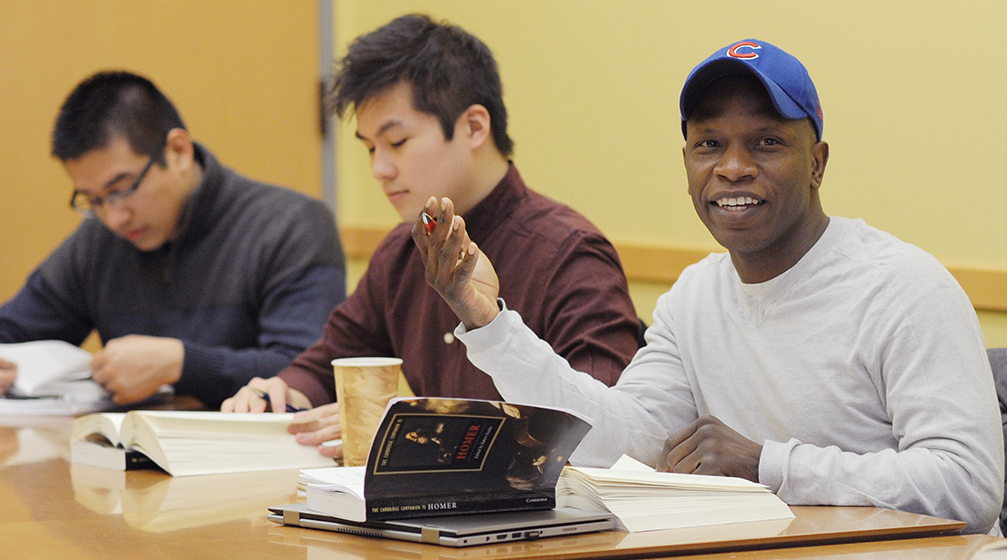
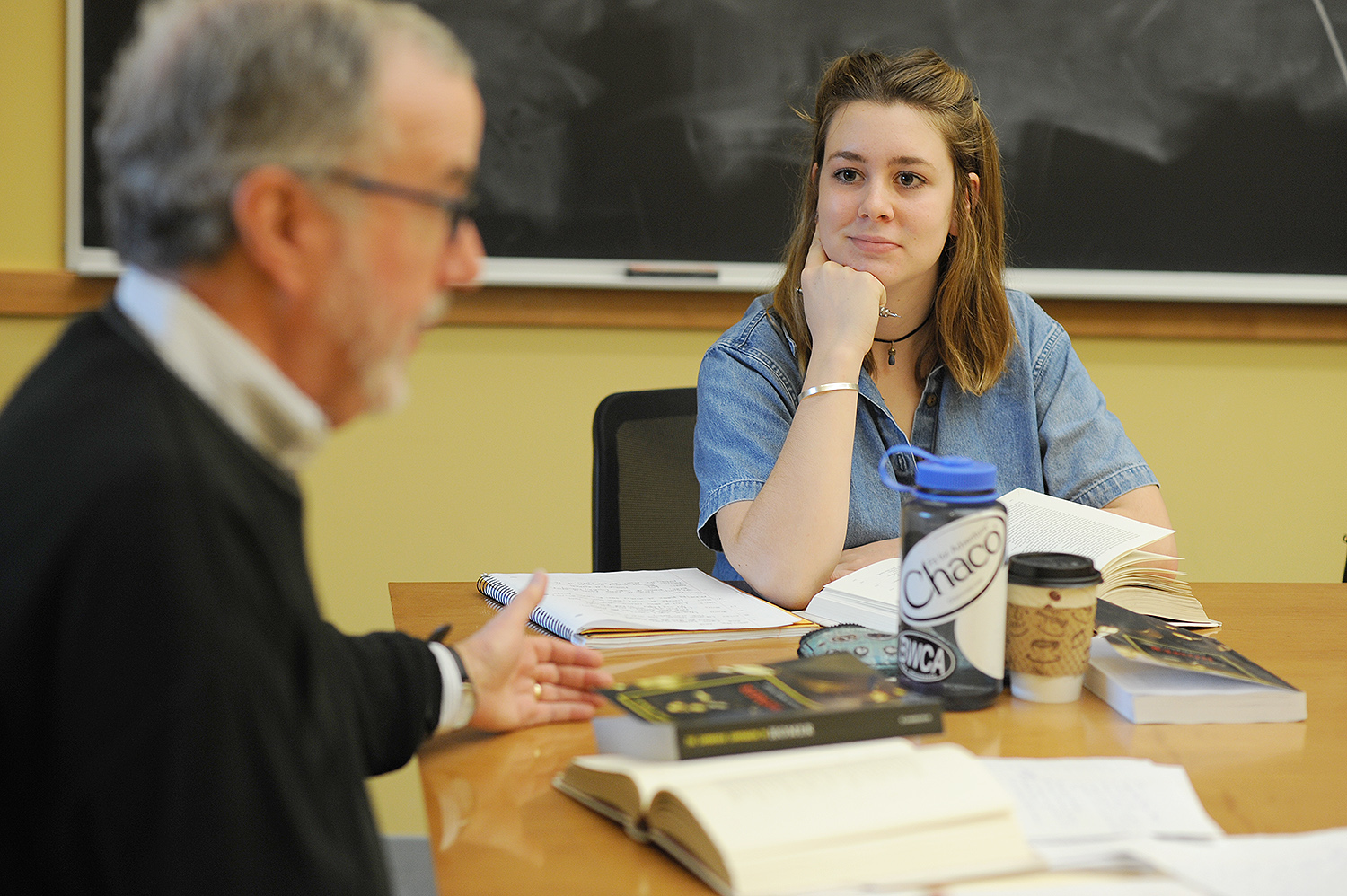
Doug Foyle, associate professor of government, taught U.S. Foreign Policy. This course provided a survey of the content and formulation of American foreign policy with an emphasis on the period after World War II. It evaluates the sources of American foreign policy including the international system, societal factors, government processes, and individual decision makers. A significant component of the course is the intensive discussion of specific foreign policy decisions.
Photos of his class are below:
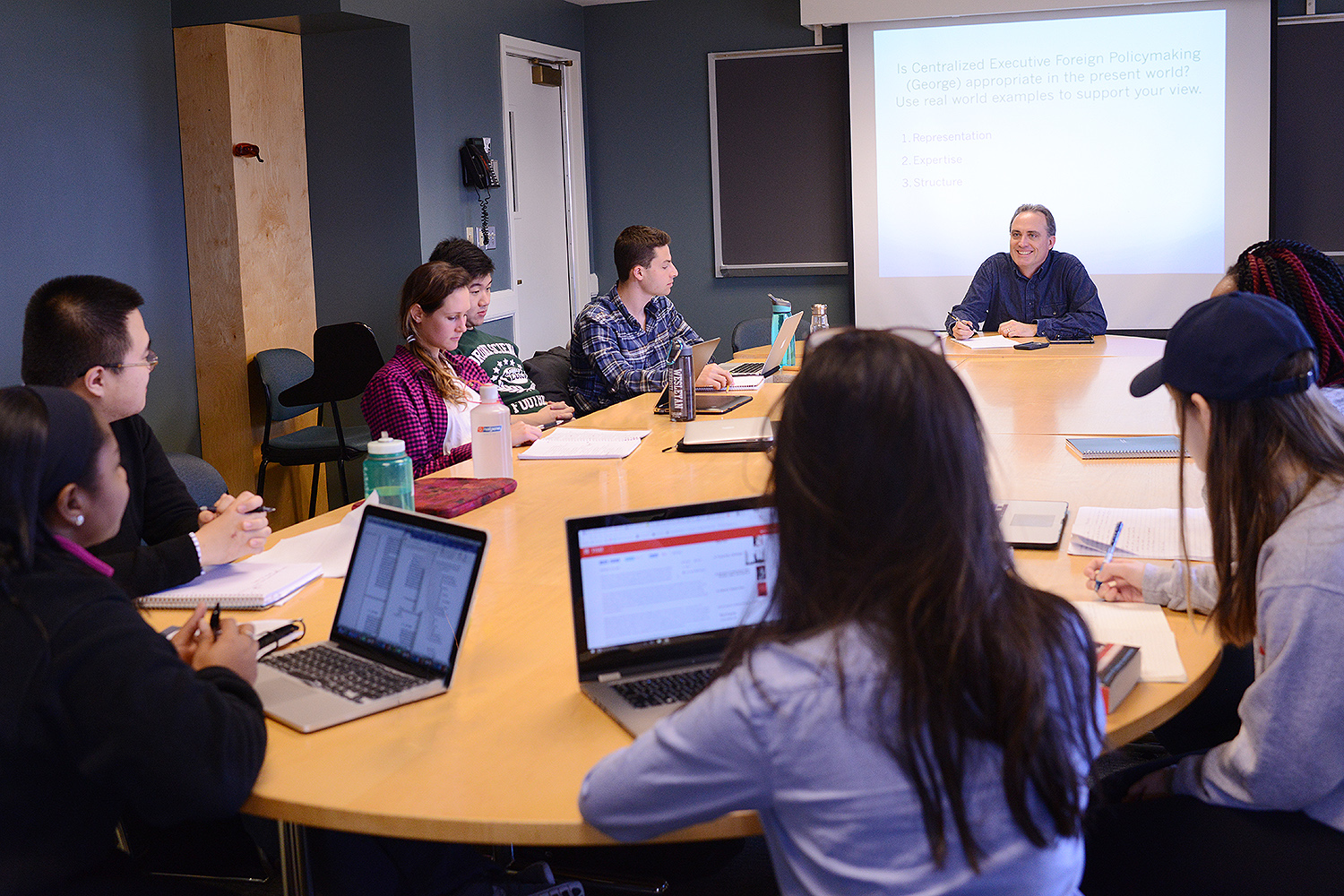
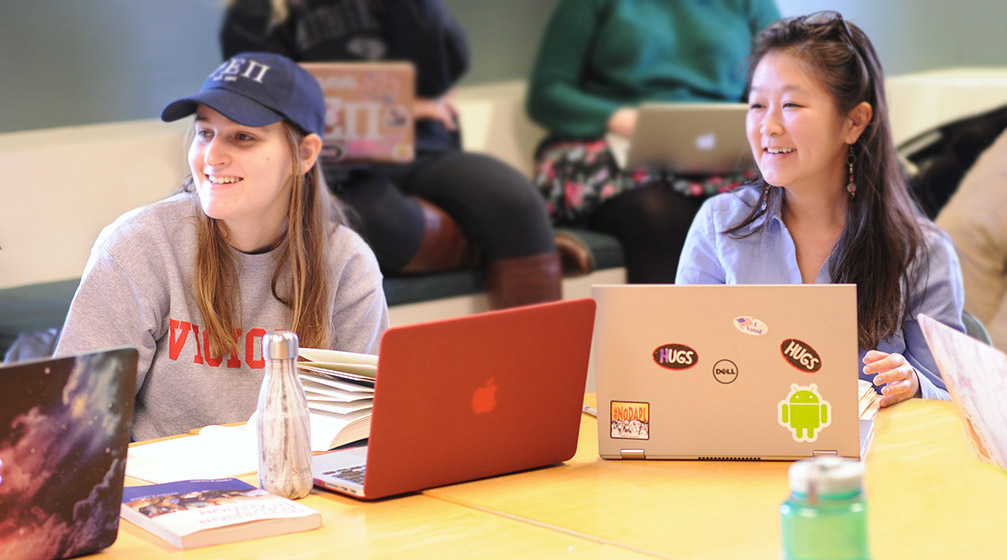
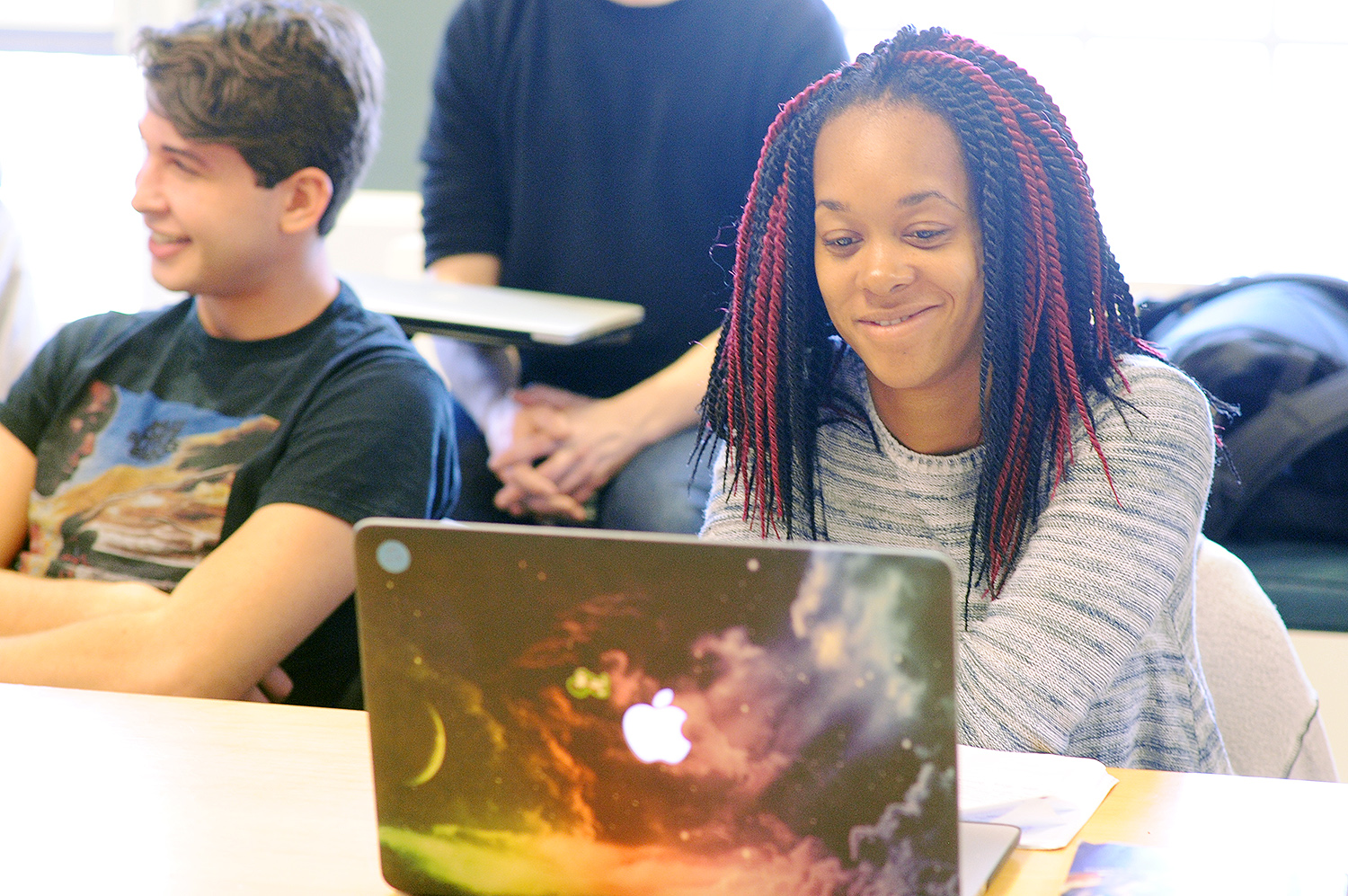
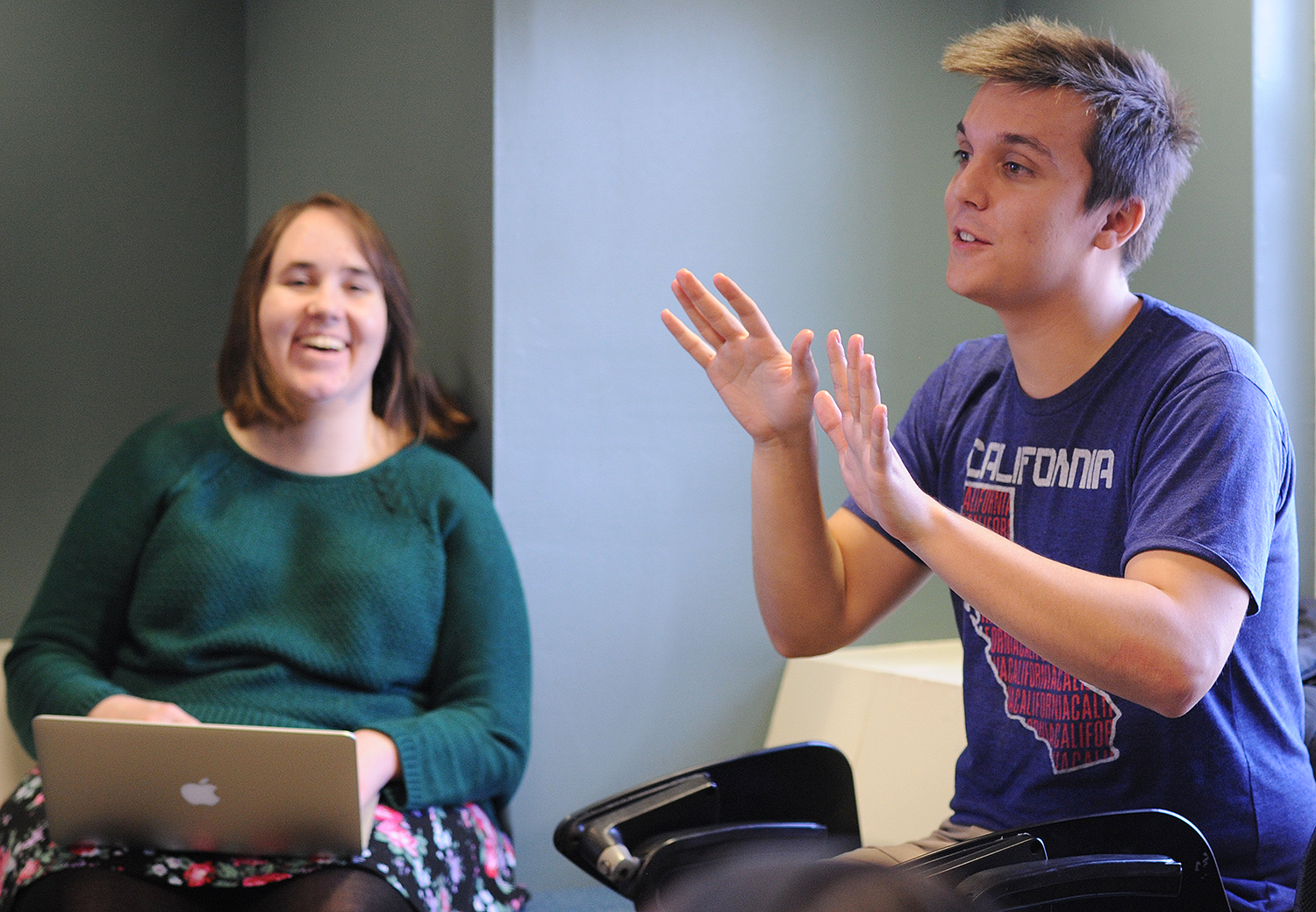
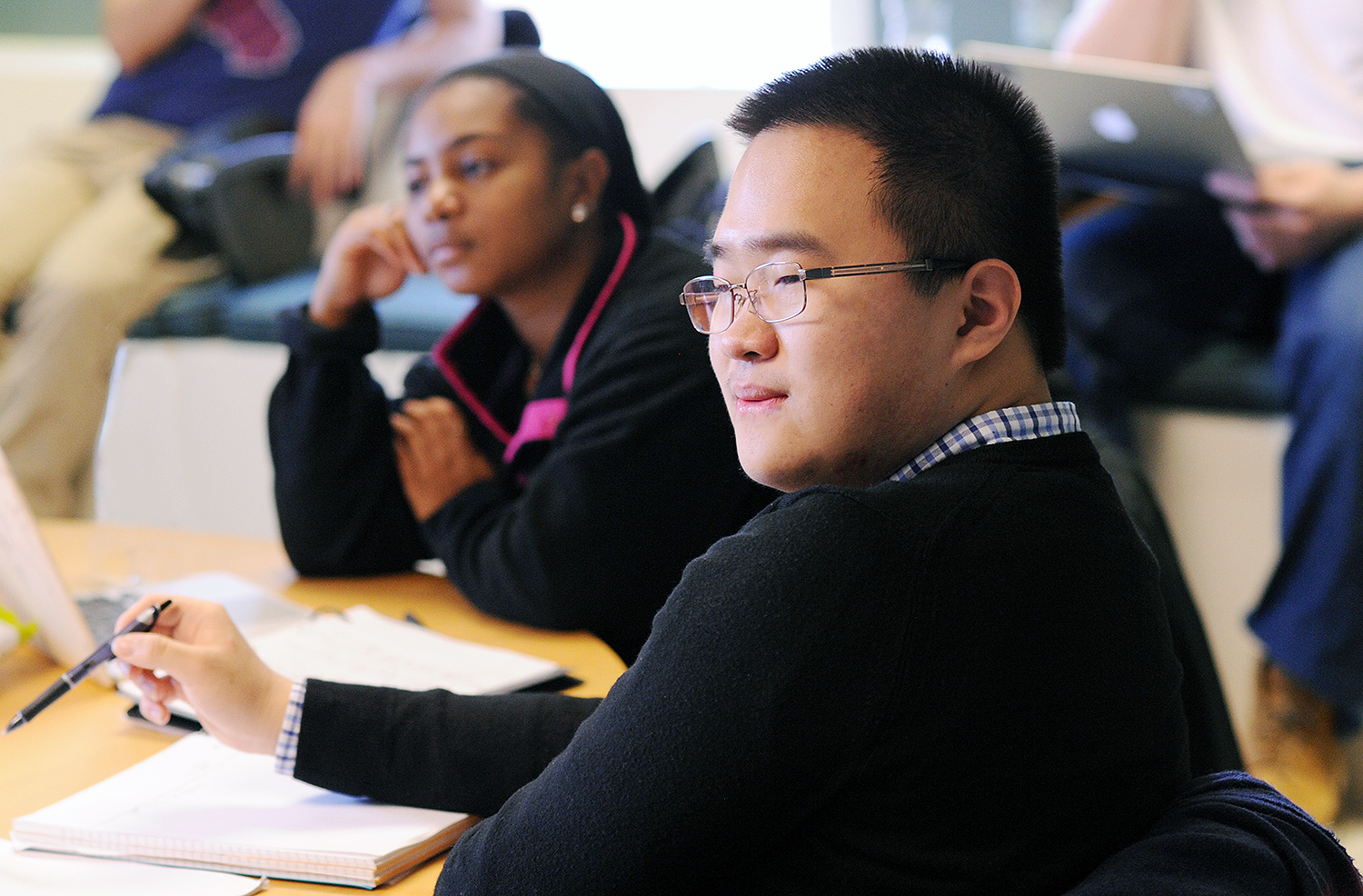
James Lipton, professor of computer science, taught Introduction to Programming with Python, an object-oriented computer language. The course provided an introduction to a modern, high-level programming language including a discussion of basic control structures, input/output, functions, algorithms as well as program design issues. Students work alone and in teams to solve programming problems.
Photos of his class are below:
